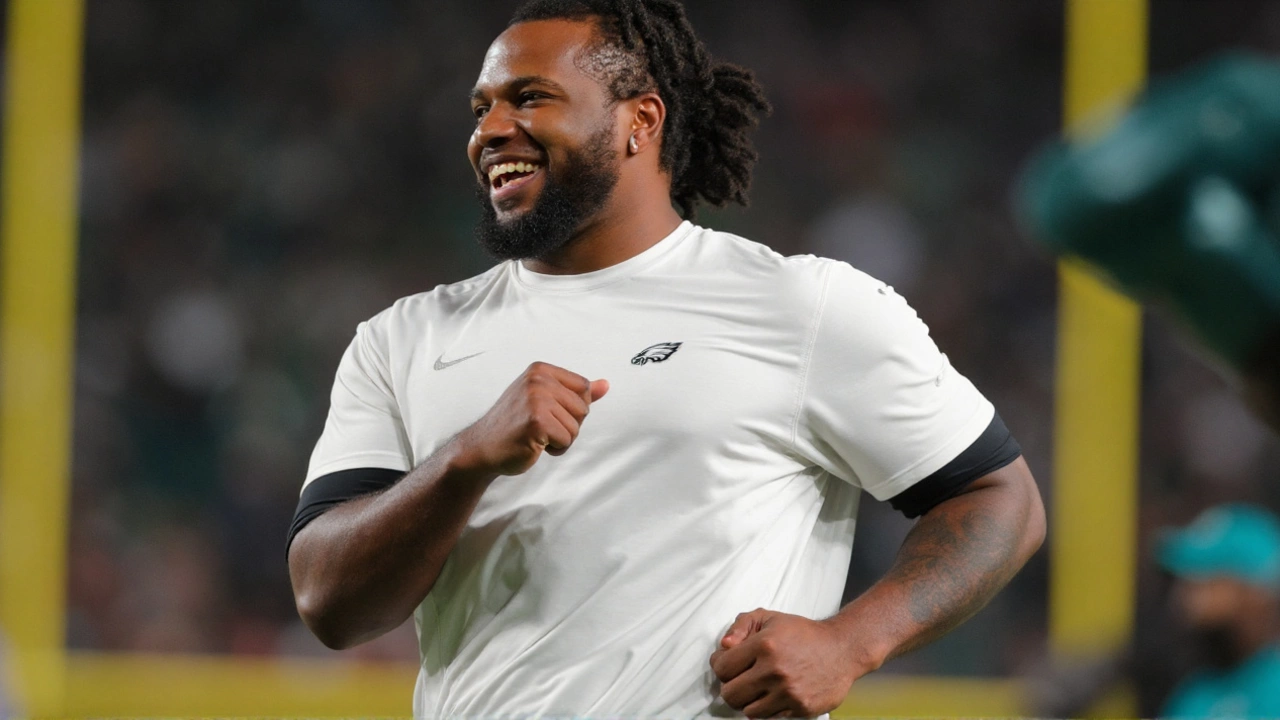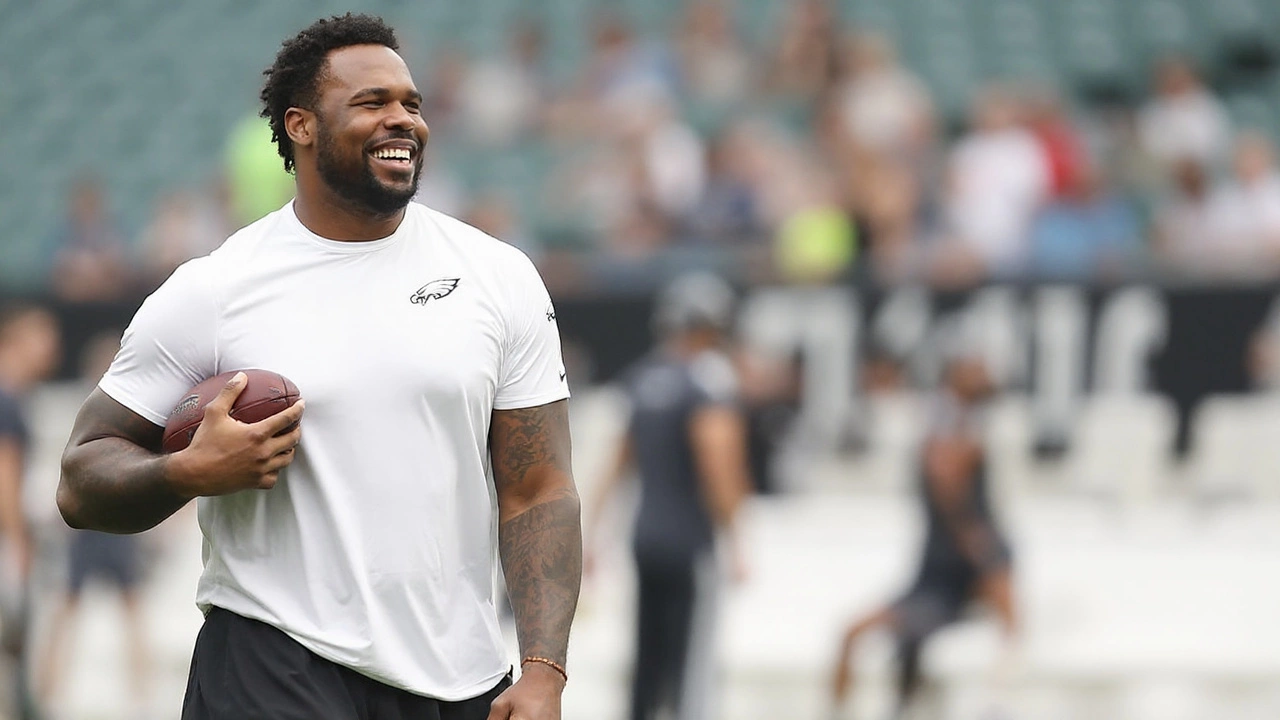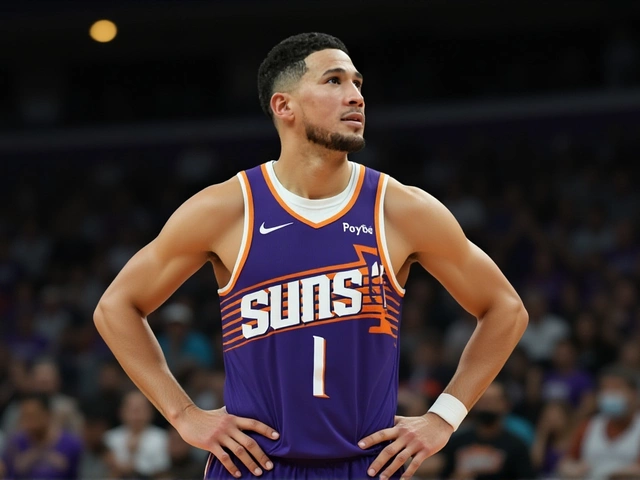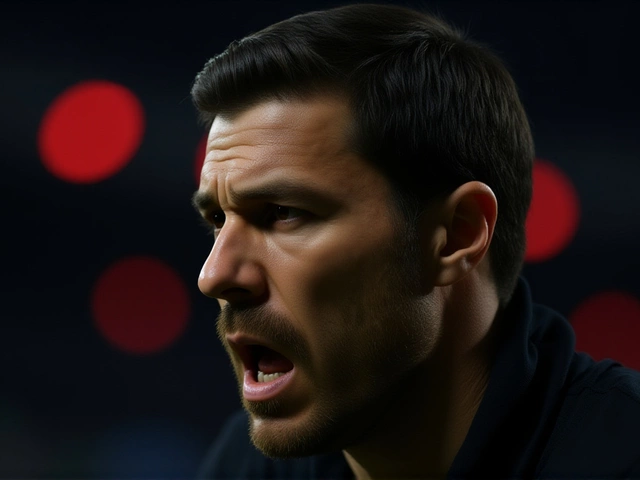
What happened on the field
The NFL’s season opener delivered a shocking moment before the first play from scrimmage. Philadelphia Eagles defensive tackle Jalen Carter was ejected just six seconds into the game for spitting on Dallas Cowboys quarterback Dak Prescott during an injury timeout at Lincoln Financial Field.
The night was supposed to be a celebration in Philadelphia. The Eagles were unveiling a championship banner and soaking in a full stadium. Then the opening kickoff turned tense. Eagles special teamer Ben VanSumeren stayed down after the return and trainers rushed in. While medical staff tended to him, both teams’ units gathered on the field, waiting out the delay.
That’s when the cameras caught it. Carter and Prescott ended up face-to-face near the Cowboys huddle. According to replays and people on the sideline, Prescott first spit toward the ground in Carter’s direction. As the two separated, Carter responded by spitting directly on the Dallas quarterback.
Officials didn’t hesitate. They threw a flag for unsportsmanlike conduct, marked off 15 yards against the Eagles, and ejected Carter on the spot. It was over for him before he played a single defensive snap—one of the fastest ejections you’ll see in an NFL game, let alone a season opener.
The penalty did real damage. Dallas started with short field position and needed only six plays to reach the end zone. Javonte Williams punched in a 1-yard score, and a deflated Philadelphia crowd could feel the air leaving the party almost immediately.
Carter’s exit wasn’t just a headline. The 24-year-old was coming off his first Pro Bowl and is considered one of the league’s top interior disruptors. Last season, he posted 4.5 sacks and 12 tackles for loss and was a constant problem for offensive lines. Losing that level of talent—on the first series—reshaped the game plan in minutes.
After the game, Carter owned it. “I feel bad for just my teammates and fans out here,” he said. “I’m doing it for them. Doing it for my family also but fans, they show the most love. It won’t happen again. I’ve already made that promise.”
Prescott tried to cool things down on his end. He said he had been messing with one of his linemen and felt the “need” to spit, which set off the exchange. He downplayed the confrontation, but by then the league’s marquee broadcast had its viral moment, and the Eagles had a major problem to solve.

What it means and what comes next
Start with the rulebook. Spitting on an opponent is treated as a serious act under the NFL’s unsportsmanlike conduct provisions. Ejection on the field is only part of it. The league office reviews all ejections the following week, and spitting incidents typically draw fines at minimum. Depending on intent and context, the league can add a suspension.
There’s no automatic suspension for an ejection like this, but the optics matter. This happened during the NFL Kickoff Game, in prime time, with a championship crowd locked in. The league is sensitive to what it showcases on opening night, and that increases the chance of further discipline.
Philadelphia also has to deal with the football side. Carter’s presence changes how teams block the Eagles. He commands double teams and frees teammates in one-on-one matchups. When he left, the Eagles had to mix personnel, rotate their interior, and scrap parts of the plan they’d built for Dallas’s protections and run schemes. Even if the box score won’t show it, those adjustments ripple through a first half.
Then there’s the rivalry layer. Eagles-Cowboys rarely needs extra spice. But an ejection for spitting, before the first play from scrimmage, adds a new chapter that both sides will remember when they meet again. Philadelphia’s staff will preach composure. Dallas will keep the tape handy.
Inside the building, this collides with a theme from the summer. General manager Howie Roseman had praised Carter’s growth during camp, highlighting his dominance and the attention he draws from offensive lines. Thursday’s moment works against that narrative. The apology helps, but the best fix is availability and clean play the next time he steps on the field.
For Prescott, the fallout is simpler. He didn’t call for a flag and brushed off the exchange after the win. Still, quarterbacks are watched closely, and any on-field back-and-forth with a star defender becomes a storyline. Expect opponents to test the line between gamesmanship and provocation when these teams share a field again.
On the officiating side, the crew followed the book: 15 yards for unsportsmanlike conduct and disqualification for spitting on an opponent. The speed of the ejection underscores how zero-tolerance that specific act has become. You might see officials manage taunting with warnings. Spitting usually gets the door.
Beyond discipline, this is a case study in how one moment flips a game. The extra 15 yards set up Dallas’s opening drive. The sudden loss of a blue-chip defender changed the trench battle. The home crowd’s mood turned. All of it happened before fans had finished their first sip of beer.
What happens now sits with the league and the team. The NFL’s disciplinary office will gather all angles, look at audio, and weigh intent. The Eagles will review the sequence internally and, at a minimum, stack reminders about sideline and dead-ball control. Carter, who said it won’t happen again, will be judged on what he does in the coming weeks.
If you’re looking for historical context, ejections this early are rare. Players get tossed for fights, for contact with officials, for flagrant hits—usually later in games when tempers have built. This one arrived during an injury timeout, which is why it landed with extra force. Fans expect calm during those pauses. The TV audience saw the opposite.
For Philadelphia, the football math is simple. With Carter out, the front seven has to win in other ways—stunts, pressure from the edges, and gap discipline against the run. It’s not just about sacks; it’s about collapsing the pocket so Prescott—and quarterbacks like him—can’t set their feet. When one of your best interior players is gone, that job gets harder, and it showed on Dallas’s first series.
For Dallas, the immediate benefit was field position and rhythm. An early lead lets the Cowboys mix run and pass, stay ahead of the sticks, and keep the Eagles’ pass rush honest. A six-play, 1-yard finish might not look like much in the play-by-play, but it quieted the building and steadied their sideline.
There’s also the image piece. Opening night is when casual fans tune in. The NFL markets respect and sportsmanship as part of the brand. Spitting, in any context, violates that. Carter’s apology acknowledged the damage done—not just to his team, but to the people who came to celebrate. That matters in Philadelphia, a city that rides its stars hard but rallies when it sees real accountability.
Expect the Eagles’ leaders to close ranks. Coaches tend to turn moments like this into teaching film: how to de-escalate, how to disengage, when to walk away. Rivalries can live on the edge; winning teams survive the jawing without crossing the line that draws flags.
Key things to watch in the days ahead:
- League review: The NFL’s disciplinary unit will examine video and reports from the officiating crew. A fine is likely; a suspension is possible.
- Team response: Philadelphia can address the matter internally with its own standards, separate from league punishment.
- Depth chart tweaks: The Eagles could adjust rotations up front if any discipline costs Carter practice time or a game.
- Rematch stakes: The next Eagles-Cowboys meeting just got a new subplot. Expect officials to set a firm tone early.
On a night designed for celebration, the story turned fast. An injury timeout, a brief exchange, a spit, a flag, and an ejection in seconds. The NFL will sort out the discipline. The Eagles will handle the locker room. And the rest of the league just got a loud reminder: in games this big, one bad decision can change everything before the season even takes its first snap.


